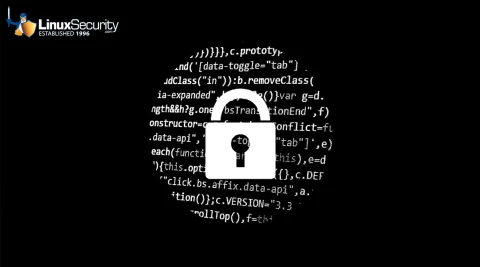Security Projects
We have thousands of posts on a wide variety of open source and security topics, conveniently organized for searching or just browsing.
We have thousands of posts on a wide variety of open source and security topics, conveniently organized for searching or just browsing.


With the release of Linux kernel 6.14, admins and Linux users have many new features and enhancements to look forward to - especially in the realm of security! This version improves defenses against well-known vulnerabilities like Spectre and Meltdown, integrates advanced security modules, and offers robust live patching capabilities. The support for new hardware means you can take advantage of the latest security enhancements built into modern CPUs and devices, making systems faster and more secure.


In a groundbreaking development, security researchers have introduced a small but mighty tweak to the Linux kernel that promises to cut data center power consumption by up to 30%. This innovative patch, included in the Linux 6.13 release, enhances the network stack with an adaptive polling mechanism, significantly boosting efficiency and throughput without sacrificing security or performance. This isn't just about power savings—it's about smarter, greener computing that optimizes CPU usage and reduces operational costs.


Open-source project security testing focuses on many components, ensuring there are no safety vulnerabilities. These components include physical security, workflow, wireless security, and human security testing. Developers should effectively manage risks that may cause vulnerabilities. Automation testing on Linux allows repeatability, compliance, and application interaction.


As the realm of Linux distribution expands, security admins find themselves faced with choosing a system that fits operational needs and upholds stringent security standards. Enter KaOS Linux 2025.01, a release that promises both security and practicality. With its recent debut, this version stands out, primarily for its security-centric updates and intuitive user experience, tailored to meet the needs of administrators everywhere.


Keeping our systems secure and stable is a top priority for us Linux admins, especially when dealing with advanced graphics and computing capabilities. The latest AMDGPU pull request for Linux 6.14 brings significant updates that enhance both security and stability.


Maintaining robust storage management and ensuring data integrity are critical responsibilities for sysadmins. With the launch of OpenZFS 2.3, security admins are equipped with advanced tools designed to elevate storage practices.


With the recent release of Wine 10.0, we now have an updated and powerful tool for running Windows applications on our Linux systems. This new version features over 6,000 improvements designed to improve performance, compatibility, and the overall user experience.


Archinstall 3.0.2 has just been released, and it brings a host of updates and improvements that Linux security admins will want to note. This latest version of Arch Linux's text-based installer includes Wayfire support and many enhancements that boost usability and reliability. Key changes include improvements to btrfs partition management, better handling of mirror lists, and replacing deprecated functions to ensure robust, up-to-date code.


Linux Kernel 6.13 is here, and for security-conscious Linux admins, it’s packed with updates that are set to make a big difference in how you lock down and manage enterprise systems. This latest kernel release is not just about keeping up with the times; it’s about staying ahead of potential threats with a suite of security-focused enhancements.


AlmaLinux 10 beta has arrived with exciting features designed to increase system security and streamline configuration management. This latest release introduces the revolutionary sudo system role, making user permission management more straightforward than ever while decreasing misconfigurations and privilege escalation risks. Furthermore, with Sequoia PGP encryption tools, your encryption game will be significantly upgraded, ensuring sensitive data stays protected against the latest threats.


Staying on top of CPU security mitigations can feel like an ongoing challenge for us Linux admins—especially when balancing performance needs with robust security measures. The newly proposed "Attack Vector Controls" for the Linux kernel offers a promising way to simplify this balancing act.


Debian 12.9 has just been released, offering numerous security enhancements and bug fixes vital for Linux security admins managing Debian systems. This point release for the "Bookworm" series addresses critical vulnerabilities in widely-used packages such as Ansible, OpenSSH, and the Linux kernel, ensuring your systems remain secure against recent threats. With security patches already rolling out via security.debian.org, this update is essential for maintaining a fortified, up-to-date Debian environment.


Nvidia Project Digits represents a groundbreaking advancement in AI development, ensuring high performance wrapped in a secure, Linux-based environment. This powerful AI supercomputer, leveraging DGX OS—a specialized variant of Ubuntu Linux 22.04—has robust security features tailored to meet the demands of AI, Machine Learning, and analytics applications. By delivering petaflop-level performance through the integration of Nvidia's Grace Blackwell Superchip and the latest CUDA and RT cores, Project Digits offers a secure, isolated platform for prototyping and fine-tuning large AI models without the vulnerabilities often associated with cloud-based systems.


The third installment of Arm's Linux kernel patches integrates support for Morello, an experimental extension of Arm architecture infused with capability-based security features from CHERI. What does this mean for us admins? Morello allows us to experiment with advanced memory protection techniques to prevent buffer overflowsbuffer overflows directly at the hardware level.


In the ongoing quest to enhance security and streamline functionality, the Linux kernel community increasingly focuses on potentially deprecated protocols that pose more harm than benefit. One such protocol is RNDIS (Remote Network Driver Interface Specification), which has become the center of discussion among developers and security experts. Initially intended for handling virtual Ethernet over USB, RNDIS has consistently been plagued by vulnerabilities and fundamental security issues, making it a concern for modern Linux-based systems.


If you're a Linux security admin searching for an innovative and practical alternative to mainstream Linux distributions, OpenMandriva might be just what you need. It is rooted in classic Mandriva heritage with user-friendly, highly configurable platforms explicitly designed to suit newcomers and experienced professionals.


As a Linux security admin, staying abreast of the latest advancements in kernel development is critical to creating an efficient and safe system. With the Linux 6.12 LTS release bringing many performance gains and improved security features over its predecessor, 6.6 LTS, upgrading could significantly enhance system stability and efficiency.


As Linux security admins, keeping abreast of the latest updates and releases is crucial to our role. The newest release candidate from Linus Torvalds, Linux 6.13-rc4, brings many changes that could notably impact your systems' security and performance.


AlmaLinux, launched as an open-source, community-driven replacement for CentOS, has quickly established itself as an enterprise and developer-friendly Linux OS. Since its debut, AlmaLinux has demonstrated its dedication to maintaining a reliable and secure environment while offering enterprise-grade performance without incurring additional expenses.


The Linux kernel community recently issued an EOL announcement regarding the 6.11 kernel series, urging sysadmins to upgrade quickly to 6.12. This announcement has significant ramifications for secure Linux system administration, as operating outdated kernels can expose systems to unpatched security flaws and associated risks.